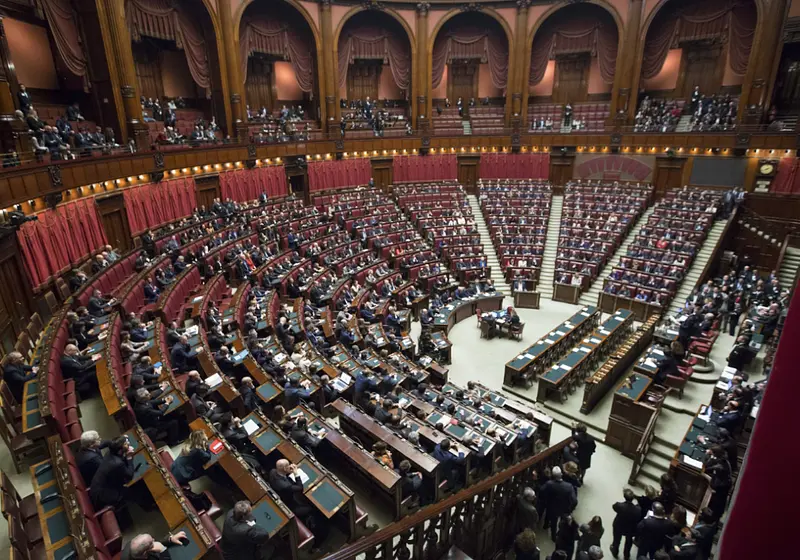The term fake news has become increasingly popular in our current society, which has led to the belief that spreading false information is acceptable, as long as the information is accepted by the masses. This is not harmless. As a generation that wants to make change, the only way to do so is by educating ourselves with facts, not rumors that “became” true.
So How Did Fake News And Acting On Misinformation (Or No Information At All) Become The Societal Norm?
With a rise in social media came a rise in misinformation spread all over the virtual world by incredibly influential people such as politicians and celebrities. Social media platforms provide the opportunity for quick posts of information, accurate or inaccurate, which then spreads in mere minutes to hours all throughout the virtual world, across millions of screens. With these technological powers, information can be spread very rapidly to a large audience, normalizing sharing posts even if the information in them is false.
Even on a topic as serious as a global pandemic, people began taking stances on masks or no masks, vaccine or no vaccine, often lacking the scientific knowledge to truly back either claim. Unfortunately, spreading false information warped, and continues to be confused in the public’s opinion. Presenting false or inaccurate information in the real world does not mean a C- on a test. It means, especially in the case of a global pandemic, that people’s lives were lost.
Social media quickly spreads information via print, and as a result, my generation is continually told that not everything we read in print on the internet is true. Despite being told this, over and over, throughout our education, teens and young adults still often consider something in print true when it may be false. Similarly, we need to be taught that not everything a politician or celebrity does is morally correct.
Just as a person should not assume any and every news article is reporting the facts, a person cannot assume that just because someone holds an office of power means they are moral. In both cases, people often choose to believe what fits their view of the world, whether it is a Facebook post or a politician’s platform. And they make this choice in order to fit in with the crowd.
In order to “fit in,” many people will avoid sharing an informed viewpoint that may be controversial in order to be seen as likable. Misinformation seems rooted in the desire to join the crowd, even if the opinion is controversial, or especially when it is controversial. When people don’t have the facts, bandwagoning and disagreeing are “fit in” tactics.
A Small Instance Demonstrates A Societal Problem
In my high school English class, I witnessed an unfortunate example of inaccurate information being spread with great authority, in order to avoid doing the difficult task of comprehending and understanding the essays we were supposed to read. To me, this seemed to be a small version of what I see happening on a national scale.
Just as false information is spread through social media or newspapers, likewise, false information was spread throughout my class so that the majority of people would all agree with each other. When asked about the essays they were assigned to read, many students decided to disagree with the piece, making up claims that had nothing to do with the authors’ arguments in order to “prove” that they read the piece despite never having done so. Students think this is no big deal since, well, what’s the worst that can happen?
A bad grade? A teacher’s disapproval? A parent’s anger? It’s not like those choices are life and death, right?
Like in politics and social issues, there is a danger to simply agreeing or disagreeing with information one does not know is true. So, while disagreeing with an argument is fine, and even essential for democracy to work, defending a view that is not even based in reality is incredibly dangerous because lives really are on the line.
Is This Really A Big Deal?
While this may seem like fairly harmless behavior, if my generation allows this to become a habit, our society’s well-being will be dependent on rumors of fact. As the future generation of the country, and soon-to-be voters, we need to understand the facts and carefully form our own viewpoints and positions based on a real comprehension of reliable information and arguments.
The essays we read in class were incredibly relevant to our current moment, as one author addressed the real issue of privilege and the other author argued that our choices often show how inconsistent we are as people. Both ideas seemed highly valuable for thinking about society, even if one didn’t agree with every point. But given my classmates didn’t read the pieces, we were unable to reflect on our society and ourselves.
While again, this may seem minor, completely invalidating claims altogether without taking the time to understand what someone is saying is destructive to the future of our society. If you are privileged enough to have the ability to read and the time to consume news, then don’t abuse that right to education.
Our country is a democracy. A democracy depends on sharing ideas widely, having access to all the facts, and, most importantly, people who are willing to read those materials and help advocate for what is true and what is best.











